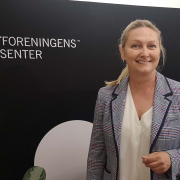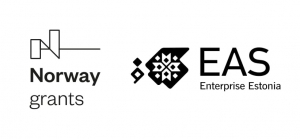Polygenic risk scores: a European cancer priority
The EU is looking to polygenic risk scores to improve prevention and early detection of cancer
Polygenic risk scores (PRS) have become one of the focus areas for prevention and early detection of cancer in the European Union’s Mission on Cancer.
“PRS tests can provide a measure of your personal risk of developing a specific disease due to your genes,” explained Krista Kruuv-Käo, project manager of AnteNOR, a project that investigates how PRS can be implemented for prevention and early detection of breast cancer in Norway.
Europe’s Beating Cancer Plan outlines 10 flagship initiatives and number 7 focuses on how cancers develop:
“Alongside the ‘Genomic for Public Health’ project, the European Initiative to Understand Cancer (UNCAN.eu), planned to be launched under the foreseen Mission on Cancer to increase the understanding of how cancers develop, will also help identify individuals at high risk from common cancers using the polygenic risk scores technique. This should facilitate personalised approaches to cancer prevention and care, allowing for actions to be taken to decrease risk or to detect cancer as early as possible.”
What about Norway?
There are about 4 200 new cases and almost 600 deaths due to breast cancer in Norway each year, according to reports from the Norwegian Cancer Registry.
“Early detection of breast cancer can save lives, but approximately 40 per cent of breast cancer cases in Norway are not detected at an early stage. For breast cancer, 31 per cent of all diagnoses are due to genetic predisposition and many women develop cancer before they reach the screening age of 50,” Kruuv-Käo commented.
There are already genetic tests in the Norwegian specialist healthcare service for monogenic pathogenic variants, such as BRCA1 and BRCA2, but not on a population-wide basis. PRS tests have not been implemented yet, although they are both cheaper and can identify more women with a moderate to high risk of developing breast cancer.
Improving cancer screening
The results of the AnteNOR project were recently presented at a meeting organized by the Norwegian Cancer Mission Hub.
“The project shows that PRS tests can be used for effective risk stratification for population-wide breast screening. By introducing genetic risk testing with PRS tests and monogenic testing, the women with moderate to high risk of developing breast cancer can be identified before the screening age of 50 years. With a personalised screening programme, some women may need to screen earlier and more often, while others can go to screenings less frequently in the future,” Kruuv-Käo explained.
Estonia is already preparing for the introduction of a personalized breast cancer screening program, and the plan is to launch it this year. Will Norway follow?



 Adobe Stock
Adobe Stock


 Pexels / Anna Tarazevich
Pexels / Anna Tarazevich






